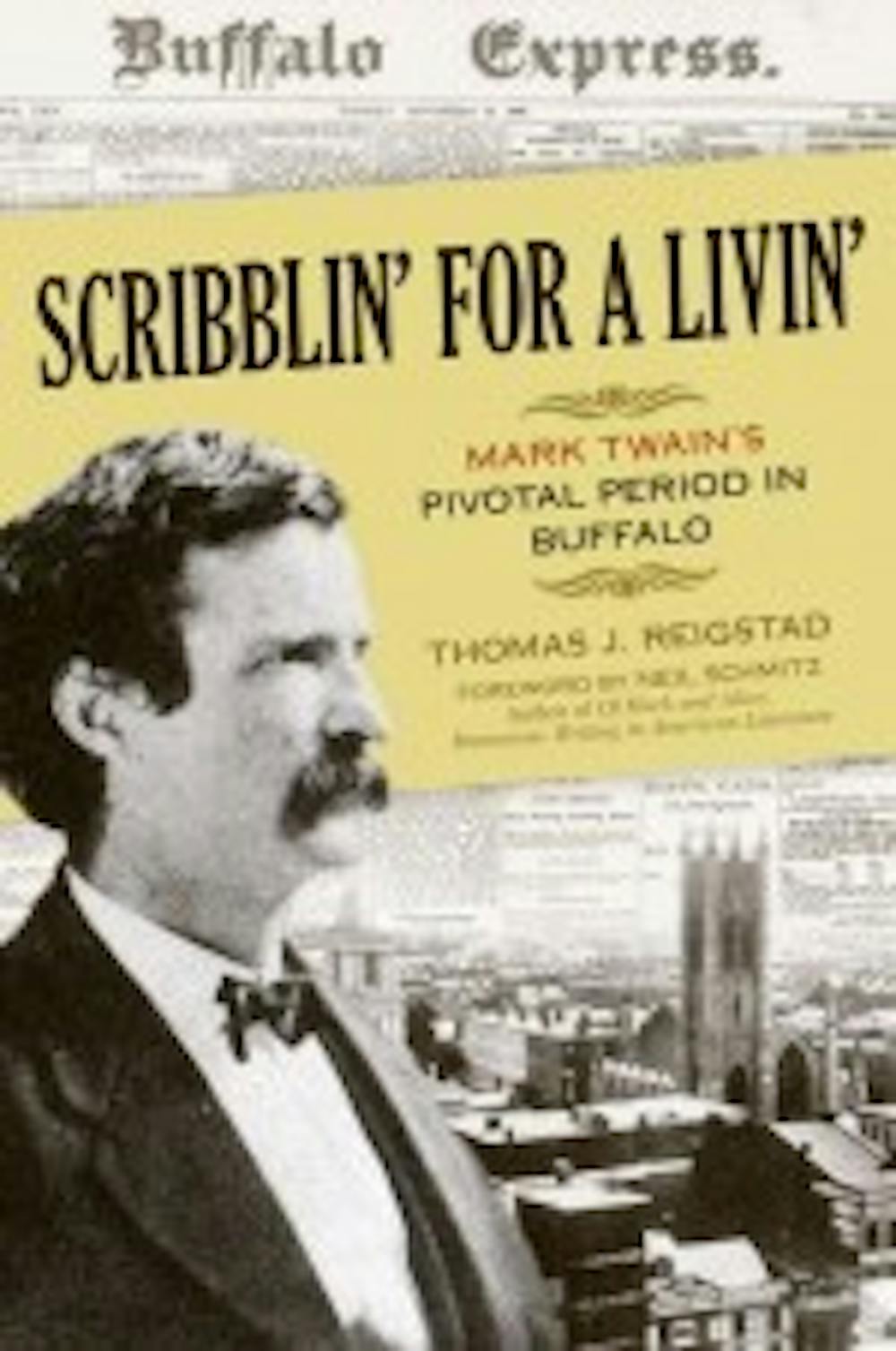In July 1869, Samuel Langhorne Clemens - better known as Mark Twain - arrived in Buffalo, N.Y., as a rising star in the literary world.
At the age of 33, Twain - who is most lauded for writing The Adventures of Tom Sawyer (1876) and its sequel, Adventures of Huckleberry Finn (1885) - spent 18 months in the Queen City.
This time in his career was fundamental to his overwhelming success in the literary world, yet a great deal of scholarship on the writer disregards Twain's time in Buffalo as dreary, isolated and unimportant. Many scholars felt Buffalo was a transgression for Twain - that the gloomy weather drove him away - but it's possible these scholars didn't look deep enough.
Thomas Reigstad wishes to change their perspective.
Reigstad, an emeritus professor of English at SUNY Buffalo State College and an avid Twain scholar, challenges these assumptions in his latest book, Scribblin' for a Livin': Mark Twain's Pivotal Period in Buffalo.
Reigstad spoke about his book last Wednesday at the Central Library in downtown Buffalo.
Anne Conable, of the Development and Communications Department of the Buffalo & Erie County Public Library, introduced Reigstad enthusiastically at the talk.
"The work [Reigstad] did for the book has really added a tremendous new piece to the scholarship that exists of Mark Twain," Conable said. "It's really important for the canon of the literary genius of Mark Twain."
In his book, Reigstad details Twain's life in Buffalo through the lens of social networks, literary accomplishments, familial transformations and his role as editor of The Buffalo Express, a prominent Buffalo-based newspaper during Twain's time. Reigstad has labored over countless documents, resources and nearly every issue of The Buffalo Express that Twain contributed to.
Through his research, Reigstad noticed a strong connection between Twain and Buffalo. One of the overarching arguments Reigstad makes is about Twain's rise to success at the same time of Buffalo's rise as a prominent city. Twain, who was shifting from journalism to writing novels and literature at the time, set a precursor for his eventual stardom. Buffalo, a booming industrial city, was on the rise to becoming the eighth-largest city in America.
"Buffalo and Twain were coming of age together," Reigstad said. "It was a happy confluence ... Buffalo was a catalyst for Twain's literary transformation."
Twain finished his second novel, Roughing It, a prequel to The Innocents Abroad in Buffalo. It was in the Queen City where he married Olivia Langdon, lived in an illustrious mansion on Delaware Avenue and networked with names such as Henry Wadsworth Longfellow, John Slee and William G. Fargo - men he kept in touch with for a number of years.
The original manuscript of Adventures of Huckleberry Finn also sits at the Central Library in downtown Buffalo. The manuscript was a personal gift from Twain, strengthening the bond that exists between Twain and the Queen City.
Carl Penders, 60, of Buffalo, attended the talk on Wednesday. Penders, who is a writer himself, connects well with Twain's sentiments.
"[Twain is] a looming figure over American literature," Penders said. "He's a great writer, a great humorist ... and his satiric look [on life] ... it's prevalent even today."
When Twain passed away, he willed that his autobiography be released 100 years after his death. With the 100th anniversary in 2010, his autobiography was published and became a best seller despite its enormous size - a true testament to Twain's everlasting mark on the literary world.
"He is the quintessential American author," Conable said. "His books are timeless ... and they're a part of who America was at that time."
Surely, the stance that Twain was, and still is, a prominent American writer will not change. With Reigstad's new book, however, the sentiment towards Twain's time in Buffalo might. That's all that Reigstad hopes to do: provide a fresh, new perspective on the eternal author.
"Twain died in 1910," Reigstad said as he ended his talk. "But he never forgot Buffalo."
Email: arts@ubspectrum.com





